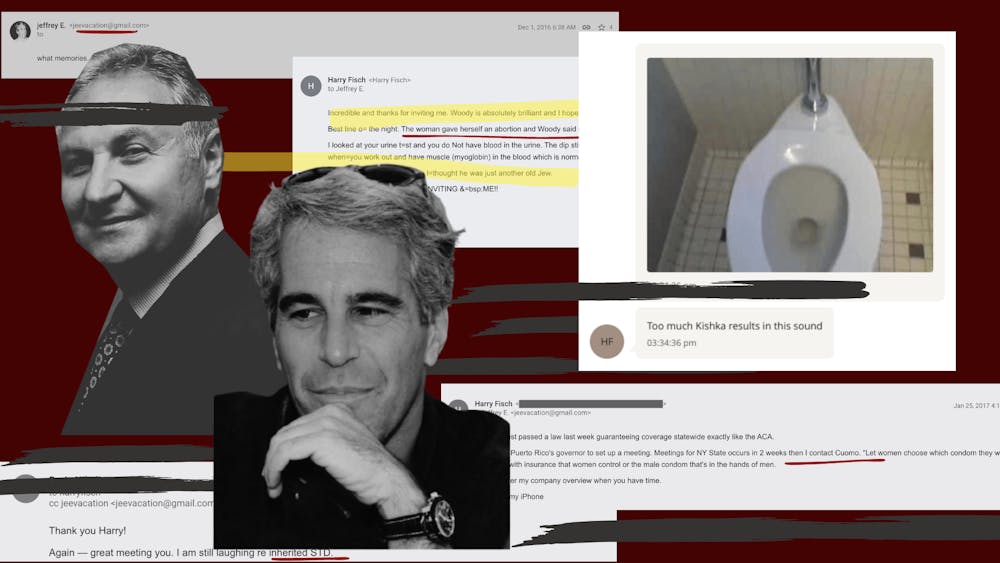Sleep Token’s latest single, “Caramel,” currently sits comfortably in the UK’s Official Charts Top 10.
Slightly below Ed Sheeran’s “Azizam” but just a couple positions above Sabrina Carpenter’s “Busy Woman,” it rests there as if this were its natural habitat — as if an alternative metal band nestled beside Benson Boone’s “Beautiful Things” were the most ordinary presence in the world. Sleep Token has been making a splash far beyond Europe. With Billboard highlighting them in the Hot 100, and Spotify noting “Caramel” as the top global debut on April 6, the band has been taking the music market by storm, claiming global visibility that most obscure masked bands between Boston and Brooklyn could only dream of — more than a couple of crowded basements, and even more than an unreasonably active Tumblr tag.
And yet, here they are next to the titans of pop, with no promotions, interviews or on-stage banter. Sleep Token operates like the stoic performers of a long-gone era: they appear, play their set while occasionally breaking into a dance best described as a cross between Joy Division-esque twitching and a cardio jog and leave without providing any context. Silence seemed to be working for a while. Sleep Token has been active since 2016, releasing three albums and playing hundreds of live shows within the span of less than a decade, all without stepping into the limelight maskless.
A rupture came in 2024. In the blink of the internet’s all-seeing eye, the musicians were doxxed, and all the YouTube fan videos opening with a chuckle of “well, we don’t really know anything about them…” suddenly felt like a relic. Of course we do — and we know more than just anything: full government names and addresses. Berated by metal purists as “the Imagine Dragons of hard music,” Sleep Token stepped into the pop world only to find themselves too unknowable for its parasocial demands.
But haven’t we seen a masked performer before and managed to let their mystery breathe? Daft Punk have been left alone for decades on end. Orville Peck has been a pair of eyes and a toothy southern grin for as long as he pleased, only recently deciding to unmask for his role in Cabaret on Broadway.
A closer inspection reveals the contrast. Daft Punk were two chill guys making chill music. Orville Peck is open and warm, generously spending the currency of interviews and walking Vanity Fair through his house to show off his shoe rack. While maintaining a level of unattainability, both Orville and Daft Punk remained appeasingly easy to wrap one’s head around — a compromise that Sleep Token didn’t offer. They never invited a reporter into their houses, never posed for a cover of Teen Vogue. Their reluctance to maintain any communication with the press left the public, already suspicious of all hard music in the never-settling dust of Satanic Panic, feeling uneasy, almost provoked to uncover the truth — without being able to elaborate on what exactly they were hoping to find there.
It’s the kind of entitlement Chappell Roan has been speaking up against while establishing boundaries with photographers and journalists. The “we made you; we own you” refrain has long haunted the entertainment industry, but few areas were affected by it as much as music where the management and promotion teams are staying in the shadows while the artist is front and center. Immediacy is a double-edged sword: while driving relatability and, in some cases, commercial reach, it does not tolerate the lack of transparency in a way usually only reserved for most intimate relationships. While not entirely unreasonable — fans are understandably wary of supporting the “wrong” people — this desire for clarity cannot realistically be fulfilled. Even knowing the artists’ names, the fanbase is left with a mere set of letters that say nothing of their bearers’ moral character. Unless we are willing to conduct a thorough investigation into every artist’s background, we may need to reckon with the uncomfortable possibility: we may simply never know. Sleep Token’s doxxing yielded, from the public’s perspective, a handful of superficial data and a couple of blurry photos of the vocalist, Vessel, on Google Images — an almost disappointing outcome of something that should have felt like a moral victory.
The potential losses that we stand to bear, on the other hand, are concrete and tangible. The arts have long been a safe haven for the outcast, the lonely, the sensitive — a utopian corner of the world where everyone could feel seen. Leaving this premise behind may not kill the entertainment industry, but it risks turning it into a strictly regulated field, governed not by the most creative, but by the most durable, and this tradeoff is worth sitting with. Are we willing to sacrifice artistic expression for the slender illusion of control?
And if we rip every mask off before it slips, will anyone dare wear it at all?
Arina Zadvornaya is a graduate student in the College of Engineering. She can be reached at az499@cornell.edu.

Arina Zadvornaya is a graduate student in the Duffield College of Engineering. She is a staff writer for the Arts & Culture department and can be reached at az499@cornell.edu.











